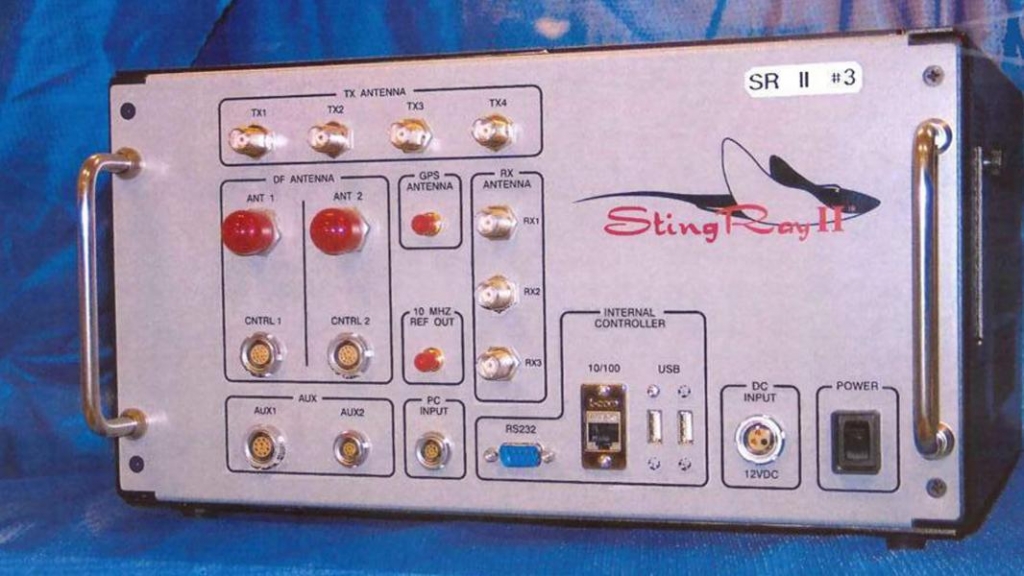-
Tips for becoming a good boxer - November 6, 2020
-
7 expert tips for making your hens night a memorable one - November 6, 2020
-
5 reasons to host your Christmas party on a cruise boat - November 6, 2020
-
What to do when you’re charged with a crime - November 6, 2020
-
Should you get one or multiple dogs? Here’s all you need to know - November 3, 2020
-
A Guide: How to Build Your Very Own Magic Mirror - February 14, 2019
-
Our Top Inspirational Baseball Stars - November 24, 2018
-
Five Tech Tools That Will Help You Turn Your Blog into a Business - November 24, 2018
-
How to Indulge on Vacation without Expanding Your Waist - November 9, 2018
-
5 Strategies for Businesses to Appeal to Today’s Increasingly Mobile-Crazed Customers - November 9, 2018
U.S. DoJ Announces Enhanced Policy For Use Of Cell-Site Simulators
At least 53 state and local law enforcement agencies in 21 states and the District of Columbia have bought such devices.
Advertisement
By mimicking a legitimate mobile tower and tricking every phone in range into connecting to them, cell site simulators “catch” the global mobile subscriber number (IMSI) and electronic serial number (ESN) of each and reveal the exact location of its user.
In a series of articles, USA TODAY has outlined the broad use of the surveillance technology, which has been frequently concealed from suspects, their lawyers and even judges.
Until now, US attorneys and Justice Department agencies, including the Federal Bureau of Investigation and the Drug Enforcement Administration, have been able to use cell-site simulators without applying for a warrant or outlining a probable cause.
The policy also requires deleting cellphone data that’s been collected once law enforcement officials have the information that they need.
Yates said the Justice Department is trying to balance privacy interests of citizens with a desire to solve crimes while “not giving a road map to the bad guys who are trying to defeat it”.
Nathan Freed Wessler, staff attorney for the ACLU’s Speech, Privacy, and Technology Project, said he was “happy” that Justice was engaging in a public discussion, but he said the policy did not go far enough.
The DoJ said that the move will “enhance transparency and accountability, improve training and supervision, establish a higher and more consistent legal standard and increase privacy protections in relation to law enforcement’s use of this critical technology”. For example, when the equipment is used to locate a cellular device, all data must be deleted as soon as that device is located, and no less than once daily.
“It’s silent even about when the Department of Justice loans it to a local agency, and about what happens when the department gives grant money to local agencies to buy their own StingRays”.
Cardozo points out, however, hat the change in policy is not a new law. Only a few federal agencies have actually used cellphone tracking, he says, and those that do have begun requiring their agents to obtain a warrant, as the Justice Department now requires.
Local police departments, including in Baltimore, have faced scrutiny over how they employ the technology. The technology used by federal authorities does not capture emails, texts, contact lists, images or any other data from the phone, officials said.
“In addition, the guidance leaves the door open to warrantless use of StingRays in undefined “exceptional circumstances” while permitting retention of innocent bystander data for up to 30 days in certain cases”, Wessler added. But earlier this year, this issue was confirmed in a warrant application requesting approval to use a stingray, in which FBI Special Agent Michael A. Scimeca disclosed the disruptive capability of the devices to a judge. “
Advertisement
The Justice Department must close these loopholes, and Congress should act to pass more comprehensive legislation to ensure that Americans’ privacy is protected from these devices and other location tracking technologies”.





























